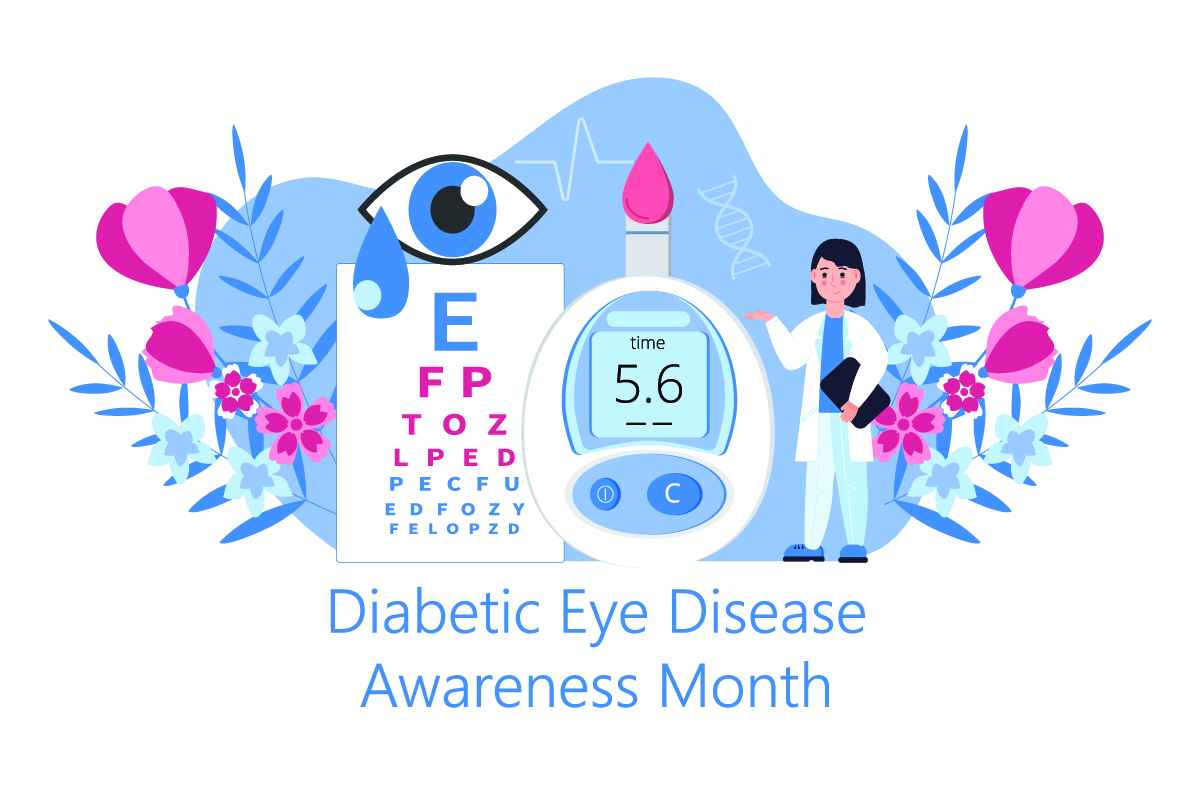
Every November, Wiles Eye Center participates in Diabetic Eye Disease Awareness Month in an effort to make more people aware of the effects of the disease. Our ophthalmologists encourage people who are at risk to get screened early, so they can start prompt care if diagnosed. Early intervention and timely treatment are key to limiting the effects of diabetic eye disease on long-term vision.
In this post, our team reviews the warning signs that people with diabetes should watch for. If you experience any of the following warning signs, we urge you to schedule a screening with our eye doctors.
What Are the Warning Signs of Diabetic Eye Disease?
Diabetes causes changes to the small blood vessels that nourish the retina. The blood vessels can leak blood and other fluids into the retina. This condition is called diabetic retinopathy. In the early stages of diabetic retinopathy, there may be no symptoms. As the disease progresses, warning signs can include the following:
- Blurry vision
- Floaters (objects – e.g., spots, strings, specks – that appear to float around in the visual field)
- Flashes of light (streaks or sparks of light that appear in the visual field)
- Dark or blank spots in vision
Sometimes diabetic eye disease can affect the macula. The macula is the part of the retina that controls the clarity of our central vision as well as our color vision. Fluid that leaks from the retinal blood vessels can build up and cause the macula to swell. This is called diabetic macular edema. If diabetic macular edema occurs, central and color vision can be affected. Warning signs of diabetic macular edema include the following:
- Blurriness or distortion in the center of the visual field
- Colors that appear faded or yellowed
Note that these symptoms are not exclusive to diabetic eye disease. Sometimes they can indicate other problems with the eyes. A qualified eye doctor can discuss your symptoms with you, perform appropriate testing and provide you with an accurate diagnosis.
Managing Diabetic Eye Disease
Diabetic eye disease is treatable. If you are evaluated and diagnosed with diabetic eye disease, our team of experts can discuss your best treatment options based on the type and severity of your condition. That could entail undergoing an in-office laser procedure, or an eye surgery, or receiving injections to stop the damage to the retinal blood vessels.
Our diabetic eye disease experts will act quickly to stop the disease from advancing and prevent additional vision loss. We can coordinate with other members of your medical team, such as your endocrinologist or primary care physician, to keep them up to date on your ongoing eye care.
It is crucial that you follow your medical team’s advice to bring your blood sugar and other vitals under control. Well-controlled diabetes is less likely to permanently affect your ocular health.
To request an eye exam and screening for diabetic eye disease, please contact Wiles Eye Center today.

Comments are closed here.